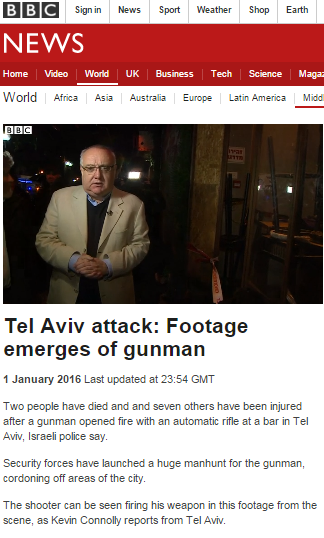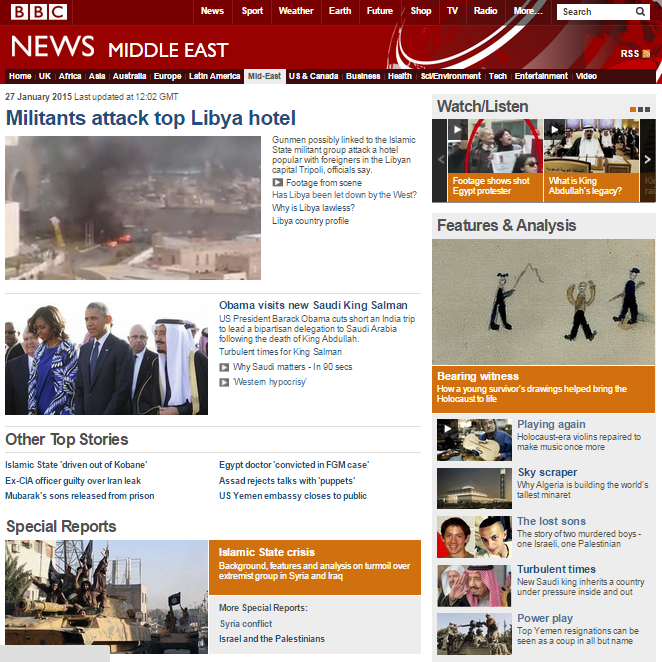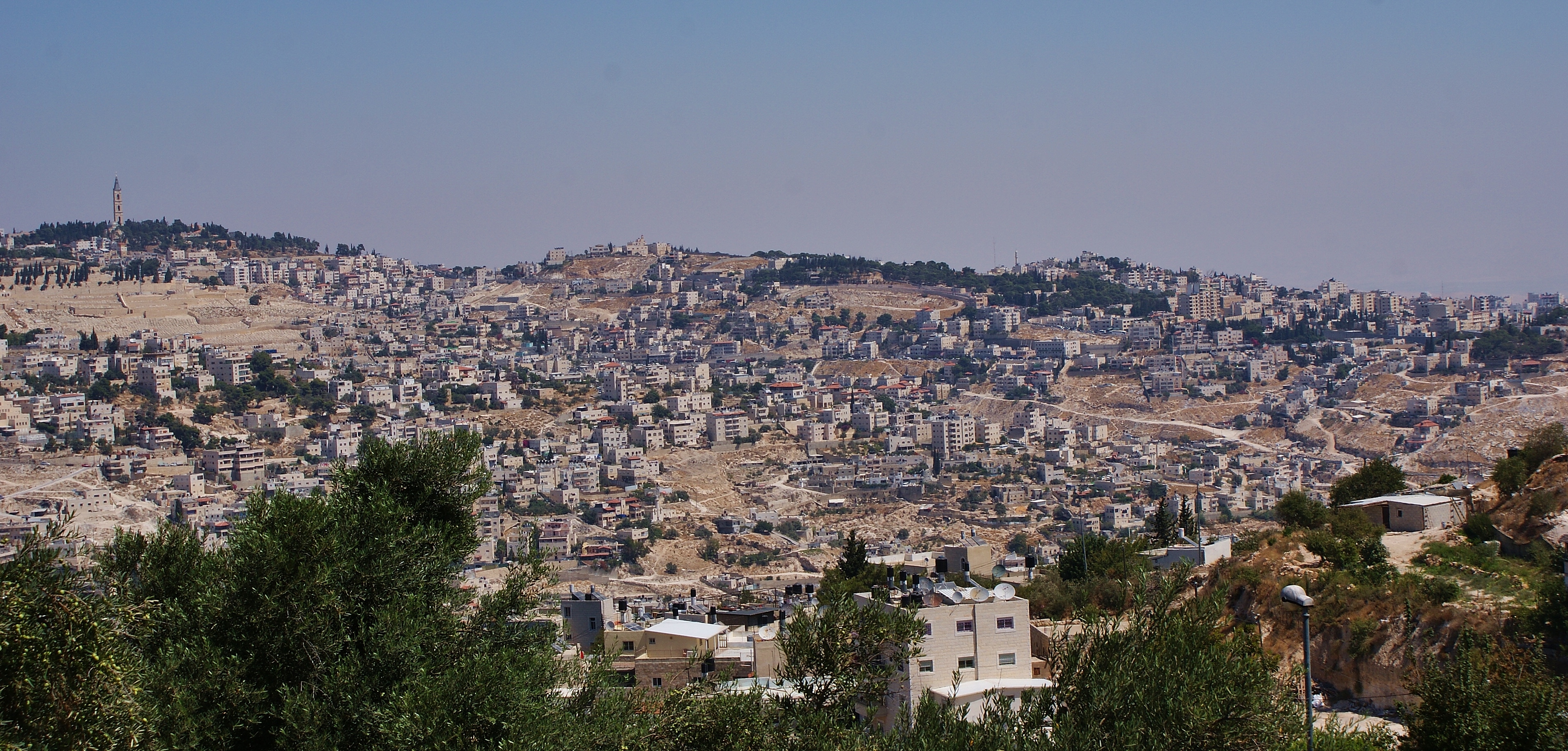The United Nations Relief and Works Agency (UNRWA) long since ceased to confine its activities to humanitarian work and frequently acts as a political campaigning group, with one focus of its efforts being the issue of the border restrictions imposed by Israel as a means of curbing Hamas terrorism. Notably, UNRWA’s approach to that issue dovetails with Hamas’ standpoint as seen in the terrorist organisation’s ceasefire demands made during last summer’s conflict.
The BBC has frequently used its various platforms to amplify UNRWA’s political campaigning on that topic – examples can be seen here, here, here and here. UNRWA employees are also not infrequently given unchallenged airtime to promote their messaging on additional subjects – see examples here and here – and as we know, UNRWA’s spokesman (and former BBC employee) Chris Gunness successfully pressured the BBC last August to get the content of an article about casualty figures in the Gaza Strip amended to be more to his political tastes.
Recently UNRWA employed the six month anniversary of the ceasefire which brought last summer’s hostilities to an end to promote further campaigning. Coincidentally – or not – that anniversary also saw the appearance of a series of reports by Lyse Doucet on the topic of reconstruction in the Gaza Strip (see related articles below), some of which included contributions from UNRWA employees.
In addition to that, on March 2nd the BBC World Service promoted an interview with UNRWA’s Commissioner General which was broadcast on an unspecified radio programme and can be heard as a podcast titled “UNRWA accuses the world of abandoning Gaza” here.
In that interview Pierre Krähenbühl told World Service listeners that:
“The people of Gaza have now experienced another round of devastating conflict and destruction which was the most widespread in recent years and then of course also have to endure the cumulative effect of years of blockade with lack of freedom of movement, with no opportunities in terms of employment. So that combination is really leading it to a tipping point.”
Rather than informing listeners how Hamas’ policy of terrorism against Israeli civilians brought about that blockade and explaining exactly what it entails, the BBC presenter added his own fuel to the fire:
“I’m looking at another figure here. It says that UNRWA gave food aid to 80 thousand Palestinians fifteen years ago and now it’s 868,000 – almost a million – according to your figures. Why the huge increase? Is this still related to this blockade you’re talking about?”
Krähenbühl answered:
“That’s a direct consequence of the blockade because of course it imposed a situation on the people that you can no longer export material. There is essentially no import so no job opportunities.”
In fact, there is no restriction on exports from the Gaza Strip and all goods are allowed into Gaza with the exception of weapons and “dual use” goods (items that can be appropriated for terrorist activities) but the BBC’s presenter made no effort to clarify those points to his listeners. He likewise failed to inform audiences of the relevant fact that the number of Palestinians classified as refugees by UNRWA rose from 750 thousand in 1950 to five million in 2013 due to that organisation’s unique policy of awarding hereditary refugee status and that the number of refugees in the Gaza Strip (which has the thirteenth highest population growth rate in the world) has consequently risen by over 400,000 people during the last 15 years. Predictably, he also refrained from asking Krähenbühl why Palestinians living under Palestinian rule for almost a decade are still classified as refugees at all.
The BBC editorial guidelines on impartiality state that:
“We should not automatically assume that contributors from other organisations (such as academics, journalists, researchers and representatives of charities) are unbiased and we may need to make it clear to the audience when contributors are associated with a particular viewpoint, if it is not apparent from their contribution or from the context in which their contribution is made.”
That stipulation is never applied to UNRWA (or other UN agencies) and hence BBC audiences are led to believe that the information they receive comes from an objective, apolitical and unbiased source. That, of course, is far from the case and the problem is further exacerbated by the BBC’s collaboration with the promotion of UNWRA’s political agenda – be it by means of generous airtime, by succumbing to the demand to alter articles or via its own campaigning reports which so often show a similarity of timing and agenda.
As Matti Friedman noted last year, international organisations such as UNRWA are not viewed by journalists as subject matter .
“Confusion over the role of the press explains one of the strangest aspects of coverage here—namely, that while international organizations are among the most powerful actors in the Israel story, they are almost never reported on. Are they bloated, ineffective, or corrupt? Are they helping, or hurting? We don’t know, because these groups are to be quoted, not covered. Journalists cross from places like the BBC to organizations like Oxfam and back. The current spokesman at the UN agency for Palestinian refugees in Gaza, for example, is a former BBC man. A Palestinian woman who participated in protests against Israel and tweeted furiously about Israel a few years ago served at the same time as a spokesperson for a UN office, and was close friends with a few reporters I know.”
The BBC’s approach to UNRWA is a prime example of that phenomenon and as long as it continues, the corporation can in no way justify its claim to be the ‘standard setter’ for international journalism.
Related Articles:
BBC’s Lyse Doucet does ‘reporter in the rubble’ redux – part one
BBC’s Lyse Doucet does ‘reporter in the rubble’ redux – part two
BBC’s Lyse Doucet does ‘reporter in the rubble’ redux – part three
Lyse Doucet’s blatant political propaganda on BBC WS WHYS – part one
Lyse Doucet’s blatant political propaganda on BBC WS WHYS – part two




